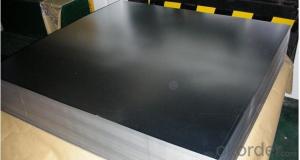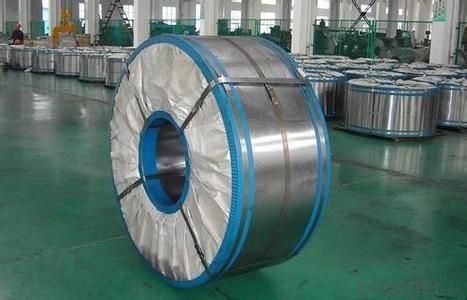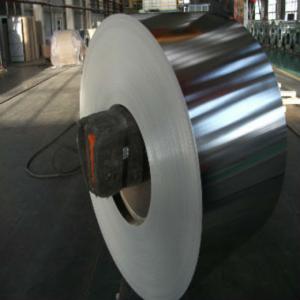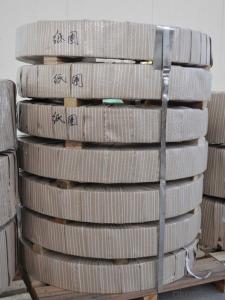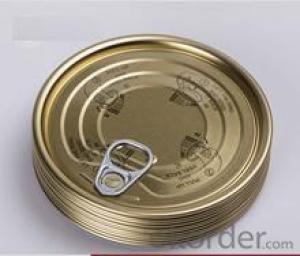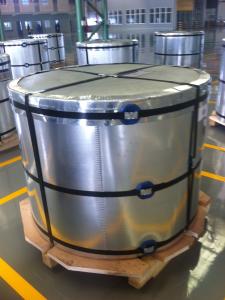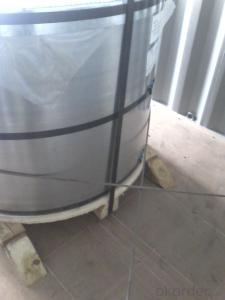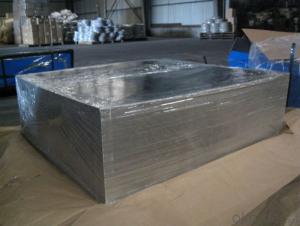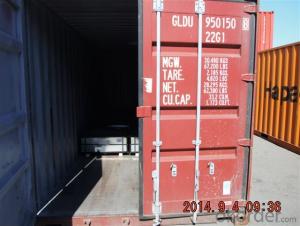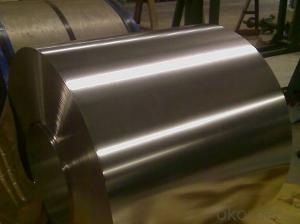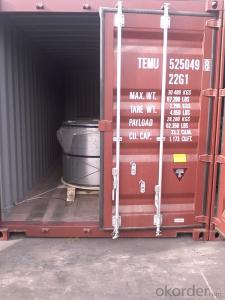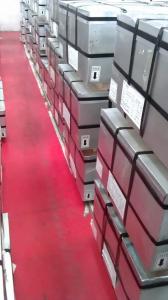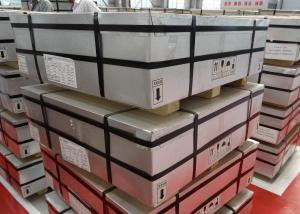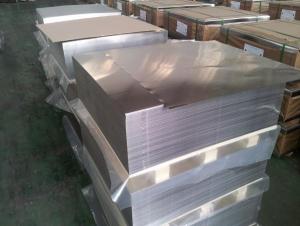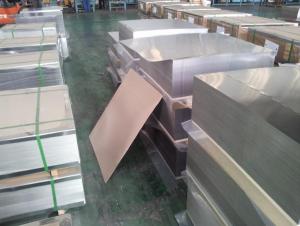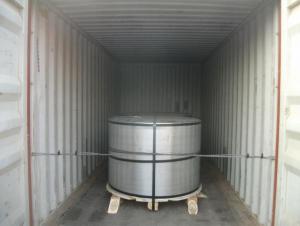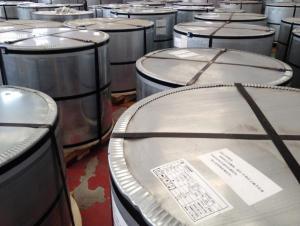PRIME Quality Tinplate ETP For Tin Caps and aerosol cans
- Loading Port:
- Tianjin
- Payment Terms:
- TT OR LC
- Min Order Qty:
- 100 m.t.
- Supply Capability:
- 40000 m.t./month
OKorder Service Pledge
OKorder Financial Service
You Might Also Like
Structure of PRIME Quality Tinplate ETP For Tin Caps and aerosol cans Description
| Steel Type | MR | ||
| Temper(BA&CA) | T1~T5, DR8, DR9 | ||
| Coating | 1.1~11.2g/m2 (Both Equal and Differential) | ||
| Thickness and tolerance | 0.15~0.50mm(Tolerance: _+0.01 mm) | ||
| Width & tolerance | 300~1000mm (Tolerance: 0~3mm) | ||
| Cut length & tolerance | 450~``50mm (Tolerance: 0~3mm ) | ||
| Coil inside diameter | 420/508mm | ||
| Coil Weight | 3~10 MT | ||
| Passivation | 311 | ||
| Oiling | DOS | ||
| Surface Finish | Bright, Stone, Silver, Matte | ||
| Packaging | Seaworthy Standard with wooden pallet | ||
| Standards Available | GB/T2520, JIS G3303, ASTM A623M & EN10202 | ||
| Special specitications are available on request. | |||
PRIME Quality Tinplate ETP For Tin Caps and aerosol cans China
Tinplate can ensure food hygiene and minimize the possibility of corruption, effectively
prevent the danger to health, but also in line with modern convenience in tinplate packaging
of canned food diet, rapid demand, tea packaging, coffee packaging, health careproduct
packaging, candy wrappers, cigarette packaging, gift packaging, food packaging containers
are preferred.As well as other miscellaneous cans of the oils and fats cans, chemicals
cans, beverage cans, spray cans, and and so on on.
PRIME Quality Tinplate ETP For Tin Caps and aerosol cans Images
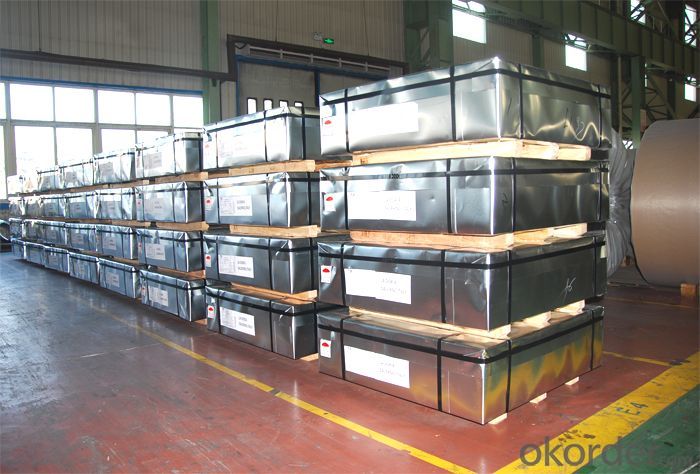
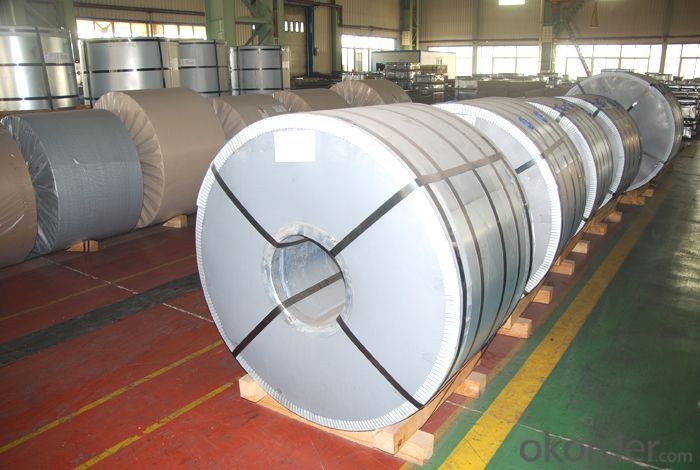
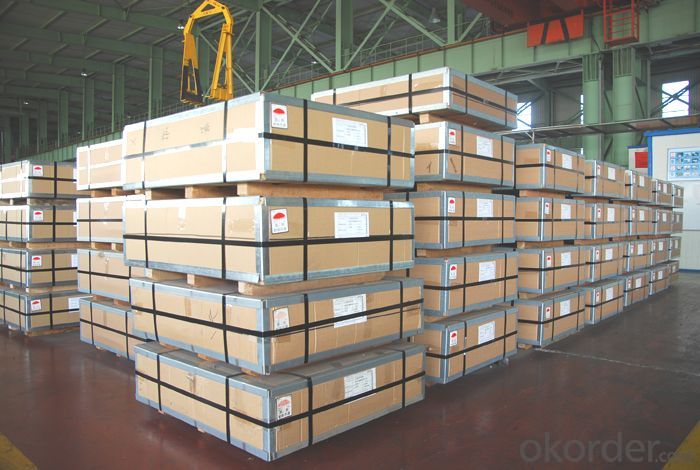
PRIME Quality Tinplate ETP For Tin Caps and aerosol cans Specification
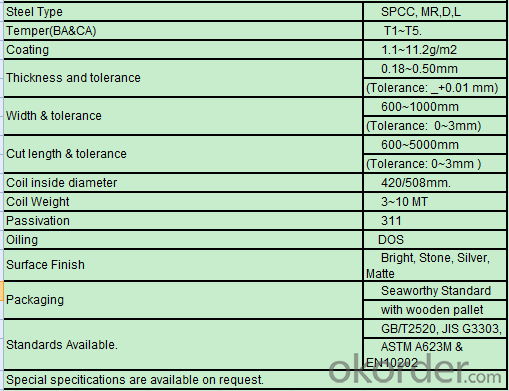
FAQ of PRIME Quality Tinplate ETP For Tin Caps and aerosol cans
How long does it take to get the product if i place an order?
With the process of your requirements,we will pack and deliver in 3-7 days.If it is by sea shipment,it will take 15-45 days depending on different locations.
- Q: What are the common storage and handling requirements for tinplate?
- Common storage and handling requirements for tinplate include storing it in a dry and well-ventilated area, away from moisture and direct sunlight. It should be kept in a temperature-controlled environment to prevent any damage or corrosion. Proper handling techniques, such as using gloves and avoiding sharp objects, should be followed to prevent any surface scratches or dents. Tinplate should also be stacked and stored in a way that prevents any deformation or structural damage.
- Q: How long does tinplate last?
- Tinplate can last for several decades if properly maintained and protected from corrosion.
- Q: How is tinplate coated for furniture?
- Tinplate is coated for furniture by applying a thin layer of tin to a steel sheet through an electroplating process, forming a protective and decorative coating.
- Q: What are the quality control measures for tinplate production?
- Quality control measures for tinplate production typically involve several steps to ensure the production of high-quality tinplate. These measures may include thorough inspection of raw materials, such as tin-coated steel coils, to ensure they meet the required specifications. During the manufacturing process, regular testing and monitoring of various parameters like coating thickness, adhesion, surface finish, and tinplate dimensions are conducted. Additionally, visual inspections are performed to identify any defects or imperfections. Furthermore, samples are taken at different stages of production for laboratory testing, which may include corrosion resistance, mechanical properties, and chemical composition analysis. These measures help maintain consistent quality and ensure that the tinplate meets the necessary standards for its intended applications.
- Q: What is the use of tinplate printing tin, storage of food safety
- Tinplate was first imported into China from abroad. It is a kind of iron with better quality and is made of extremely thin iron sheet
- Q: How does tinplate contribute to the preservation of aerosol products?
- Tinplate contributes to the preservation of aerosol products through its excellent barrier properties. The tin coating on the steel provides a protective layer that prevents the metal from reacting with the contents of the aerosol can, thus preserving the quality and efficacy of the product. Additionally, tinplate cans offer resistance to corrosion and provide a hermetic seal, preventing any external elements from contaminating the aerosol contents.
- Q: How does tinplate contribute to the performance of sports equipment?
- Tinplate contributes to the performance of sports equipment by providing a durable and lightweight material that is resistant to corrosion. It is commonly used in the manufacturing of cans, containers, and protective coatings for sports equipment, ensuring longevity and enhancing performance. Additionally, tinplate offers excellent adhesion properties, allowing for better grip and control, especially in activities that involve handling equipment such as racquets, bats, or golf clubs.
- Q: How is tinplate used in the beverage industry?
- Tinplate is commonly used in the beverage industry for packaging purposes, such as cans for carbonated drinks, fruit juices, and other beverages. The tin coating on the steel sheet provides a protective barrier, preventing corrosion and maintaining the quality and taste of the beverage. Additionally, the versatility of tinplate allows for various shapes and sizes of cans, making it a popular choice for beverage manufacturers.
- Q: How does tinplate perform in terms of oxygen barrier properties?
- Tinplate performs excellently in terms of oxygen barrier properties. The tin coating on the steel substrate acts as an effective barrier, preventing oxygen from permeating through the material. This property makes tinplate ideal for packaging applications, as it helps to preserve the freshness and quality of oxygen-sensitive products.
- Q: Can tinplate be used for automotive applications?
- Yes, tinplate can be used for automotive applications. Tinplate is a type of steel coated with a thin layer of tin, which provides excellent corrosion resistance. This makes it suitable for various automotive components such as fuel tanks, oil filters, and canisters. Tinplate's durability, strength, and ability to withstand extreme temperatures make it a reliable material for automotive applications.
Send your message to us
PRIME Quality Tinplate ETP For Tin Caps and aerosol cans
- Loading Port:
- Tianjin
- Payment Terms:
- TT OR LC
- Min Order Qty:
- 100 m.t.
- Supply Capability:
- 40000 m.t./month
OKorder Service Pledge
OKorder Financial Service
Similar products
Hot products
Hot Searches
Related keywords
